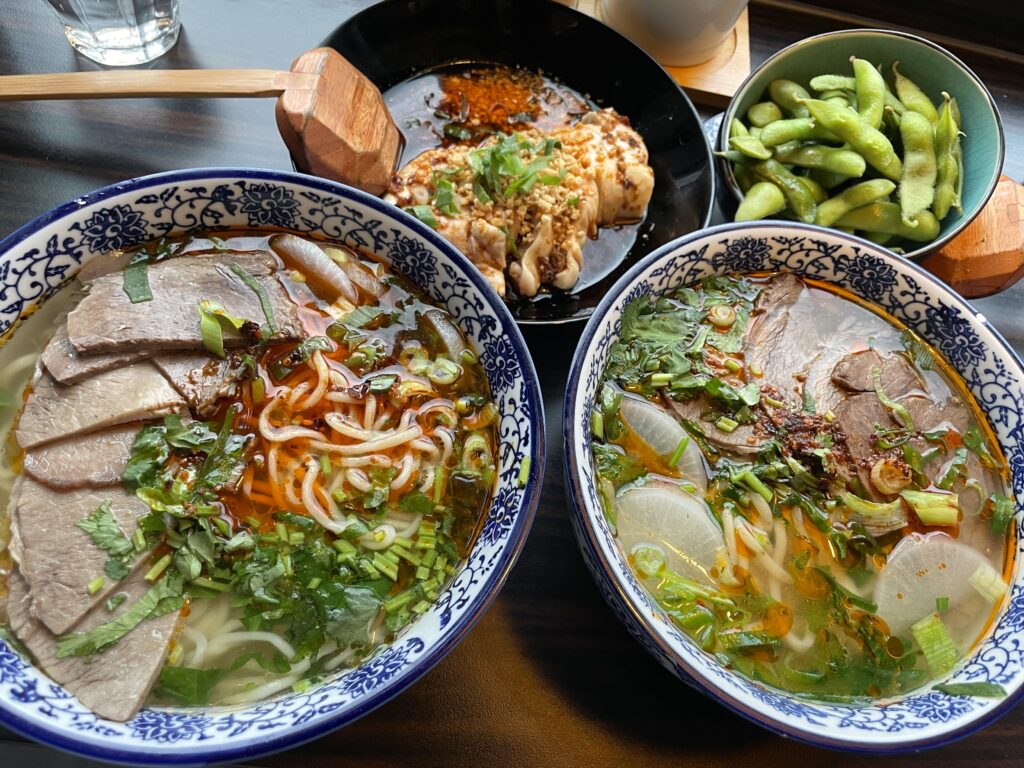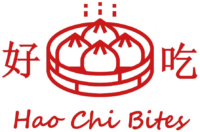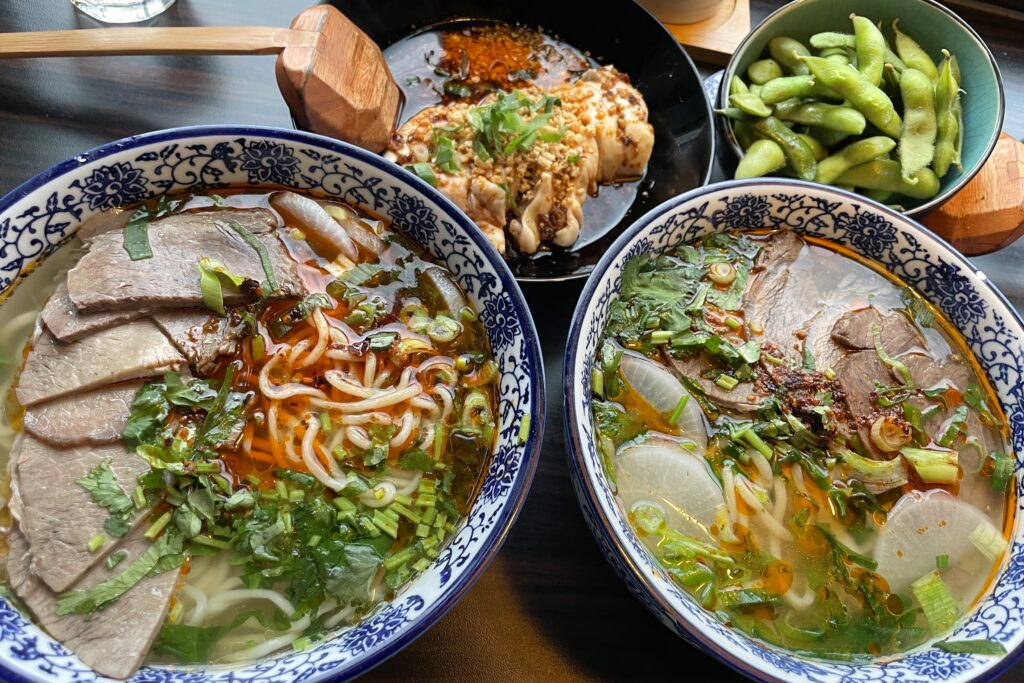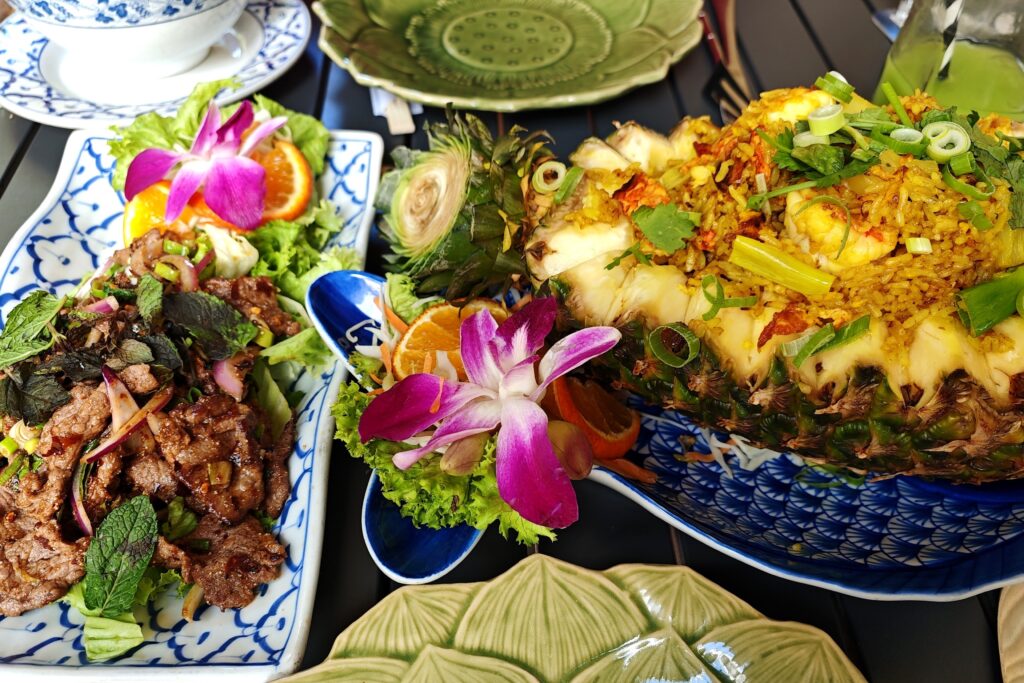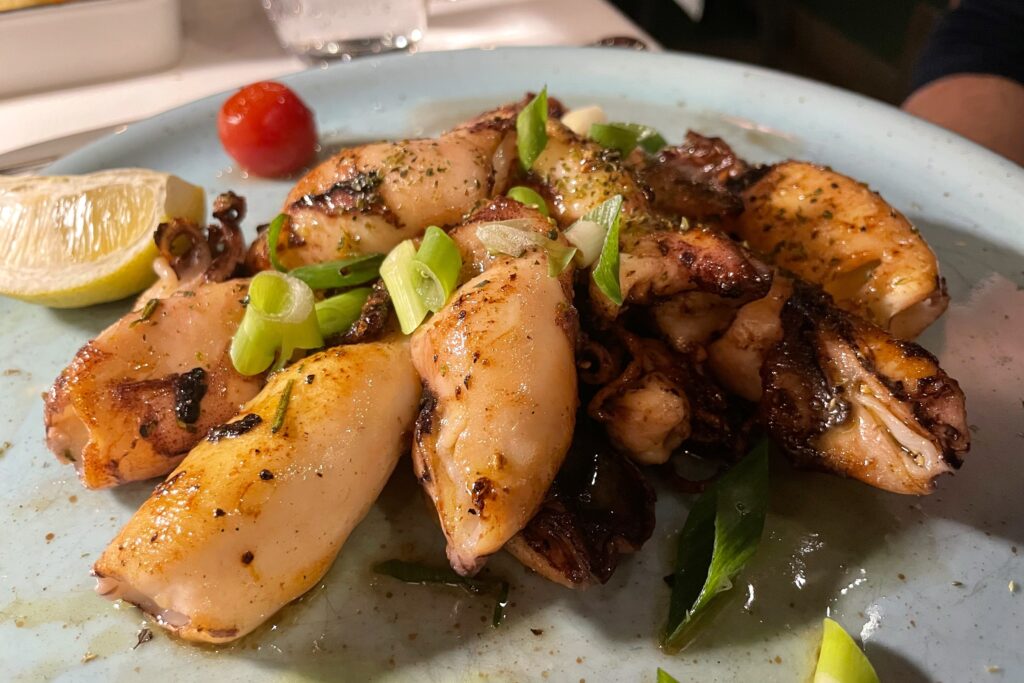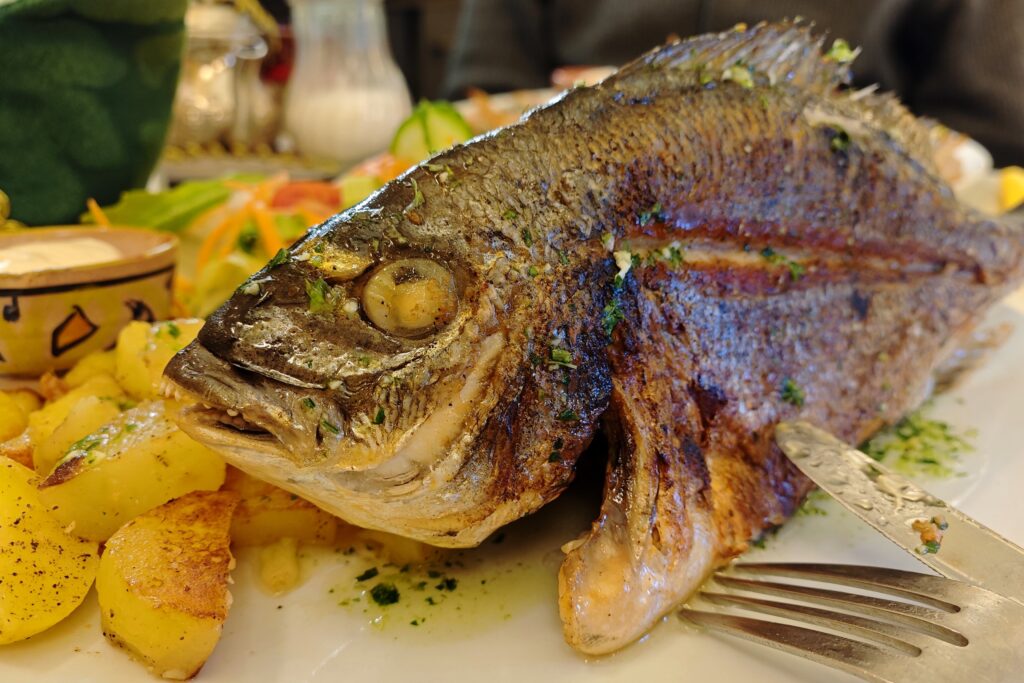It’s starting to get warmer lately, yet there’s still often a lingering chill in the air. It’s this kind of weather that calls for something comforting, something to warm the stomach. What could be better for such occasions than a steaming bowl of hand-pulled noodles? Our minds can’t help but wander back a particular spot – the beloved Noodle Maker, a popular hand-pulled noodle joint that never fails to impress us.
Restaurant Profile
- Name ot the Restaurant: The Noodlemaker
- Adress: Europa-Allee 41, 60327 Frankfurt am Main
- Style: Chinese handmade noodles
- Price: around 15 – 20 EUR p.P. (incl. drinks & tips)
Before diving into the main course, why not start with a few appetizers? Our go-to choices often include Kou Shui Ji (口水鸡 or mouth-watering chicken), 盐水毛豆 (salted boiled edamame), and 凉拌豆腐丝 (cold marinated shredded tofu). These delights have been featured in a previous post, so you may already be familiar with them.
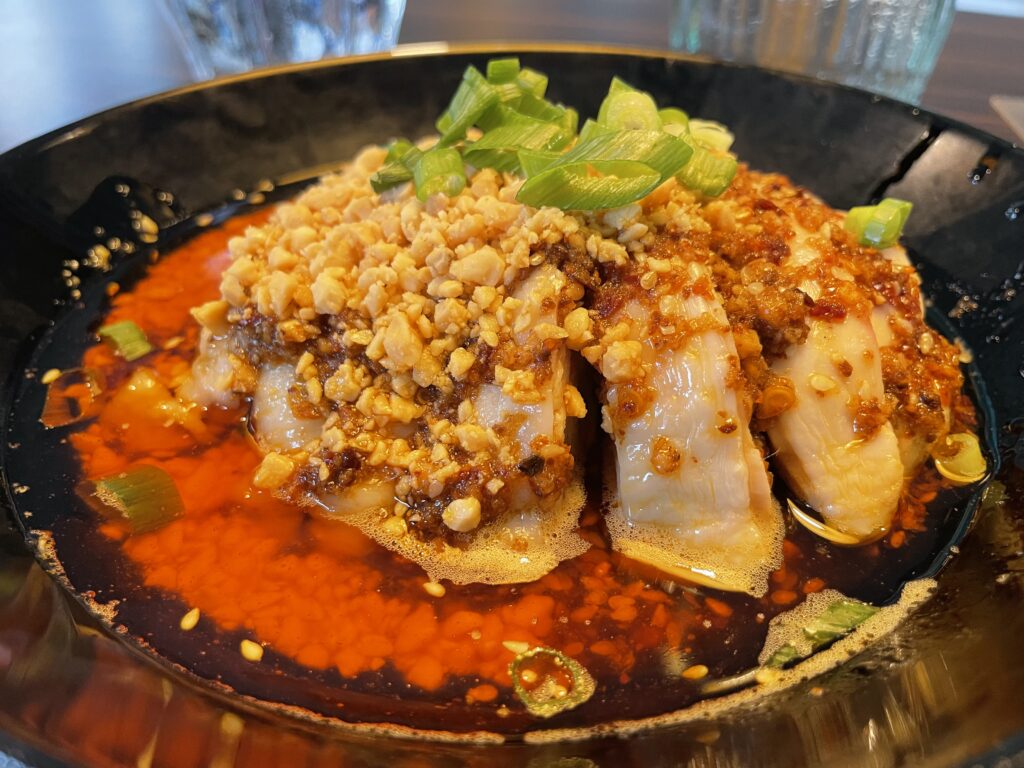
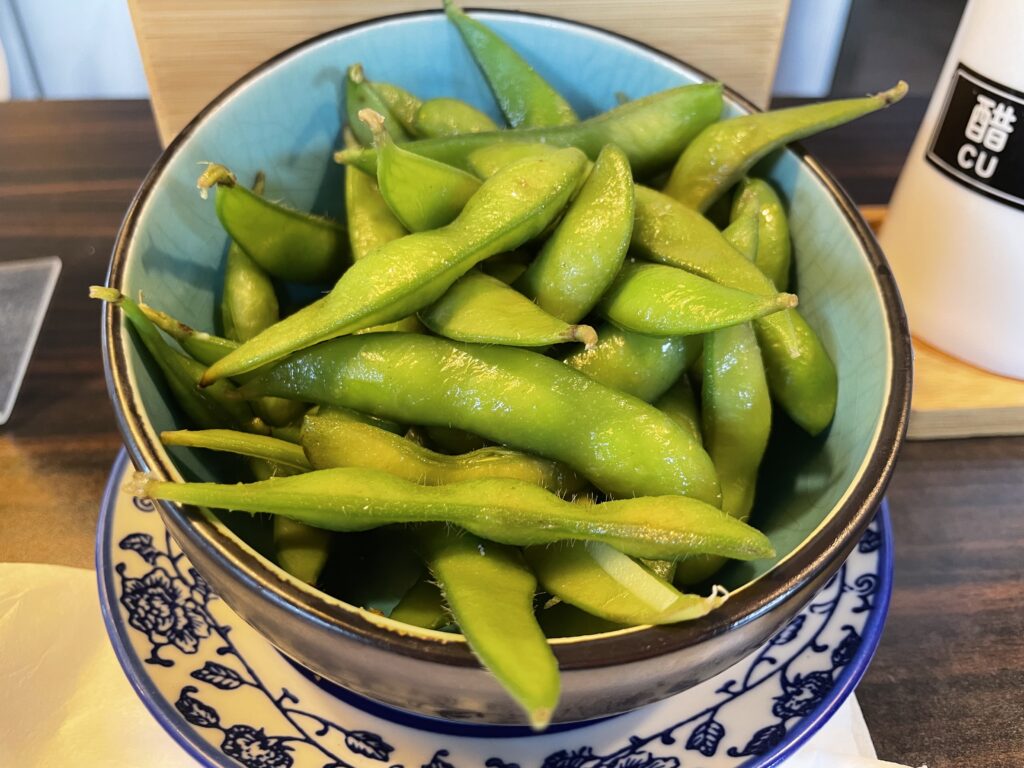
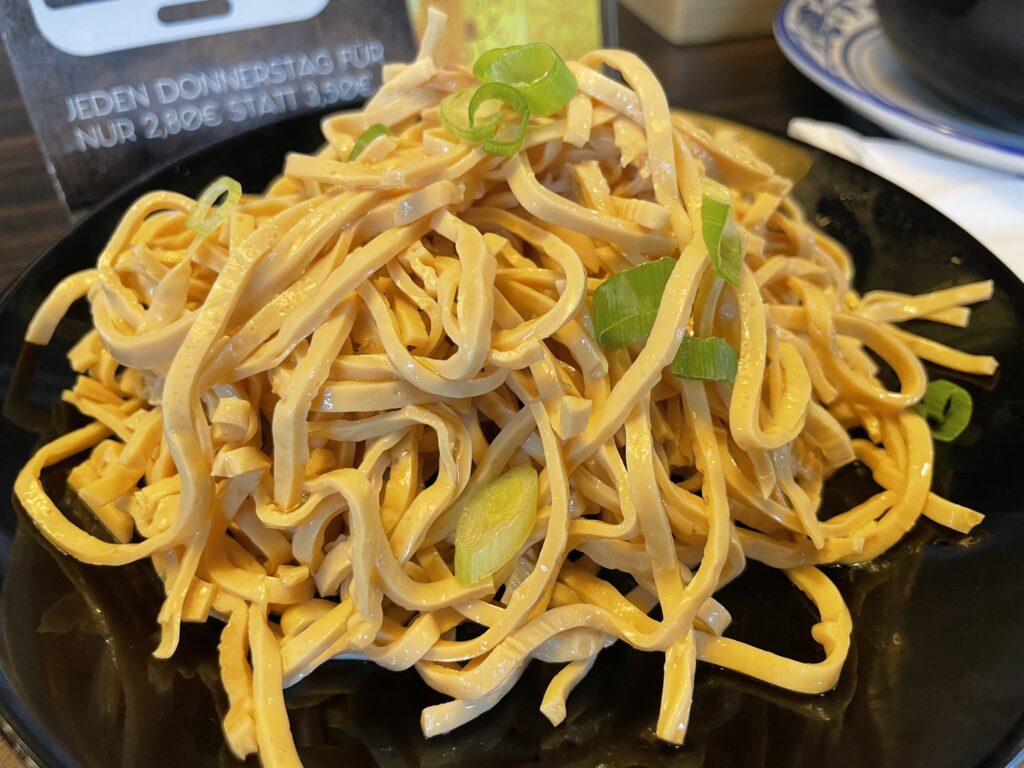
Today, we’d like to introduce something a little different, something authentically local, but perhaps not widely known in Germany. In China, it’s a traditional dish and a common household comfort food – 皮蛋拌豆腐. It features silky tofu, pi dan (皮蛋, also known as Thousand-year Egg), fragrant sesame oil, green onion and other ingredients, creating a delicious and nutritious delicacy.
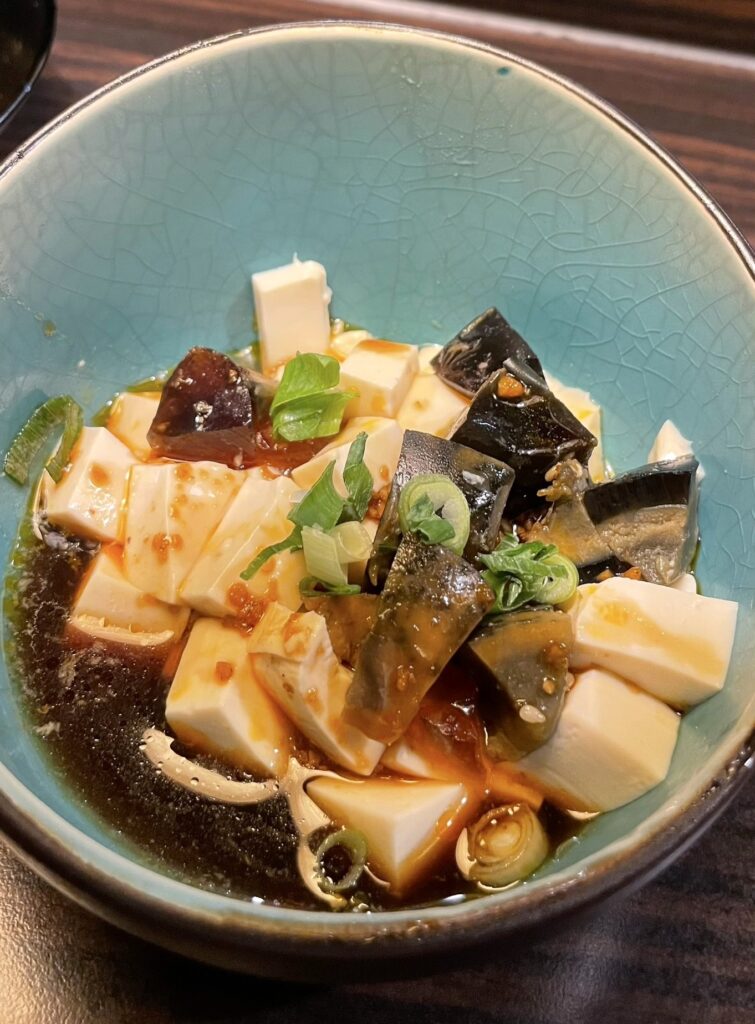
You might have heard of Thousand Year Eggs, famed for their dark greenish-black yolk and gelatinous, deep-colored egg white. Initially, people puzzled over their origin, speculating that they must have been stored for centuries to achieve such a transformation, hence the name “thousand-year egg”.
One method of making these eggs involves wrapping duck eggs in a mixture of alkaline substances, lime, and rice husks, then leaving them to ferment in a cool place for over three months. Over time, the eggs undergo changes, with the egg white solidifying into a jelly-like substance and the yolk turning semi-translucent black. Thanks to the alkaline process during preservation, proteins and lipids break down, making them easier to digest and absorb, and reducing their cholesterol content compared to fresh eggs.
The consumption of thousand-year eggs dates back to the early years of the Ming Dynasty (1368 to 1644). Their taste is truly unique: the egg white is slightly elastic and melts in the mouth, while the yolk is dense with a rich, subtle salty taste and a delicate alkaline flavor. It has a distinctive bittersweetness reminiscent of the lingering sweetness found in green tea.
Enhanced with the subtle sour notes of fragrant vinegar, nutty sesame oil, garlic, and spring onions, and paired with velvety tofu, the egg’s rich flavor is well balanced and coaxed to its fullest potential. Each bite is tender and refreshing but also uniquely captivating. It exudes an air of delicacy and practically dissolves at the slightest touch of chopsticks. To make it easier, it’s recommended to scoop it up with a spoon to savor every exquisite bite.
The „thousand-year eggs“ may initially raise eyebrows for its strong aroma and unusual appearance. Yet those willing to venture beyond the ordinary, may be enraptured by its enigmatic allure and find enjoyment in its rich, complex and distinctive flavors.
Now let’s move on to the main course – a bowl of Original Lanzhou Lamian (or Lanzhou Beef Noodle Soup), steeped in rich history. Lanzhou is home to one of the earliest noodle restaurants, “Yueyanglou”(translated as Moonlight Pavilion), which was established in the early Qing Dynasty (1636 to 1795) and initially catered exclusively to the upper social classes.
Today, Lanzhou Beef Noodle Soup has become an indispensable part of life for Lanzhou locals. For many, it’s a daily necessity. With the entire process from ordering to noodle making taking just about two minutes, it’s no wonder why this beloved dish has also become a go-to fast-food favorite across China.
The best flavor of beef noodles lies in their freshness. At Noodle Maker, you can watch as the noodles are hand-pulled by skilled chefs on-site. The dough is stretched and shaped into noodles, and then immediately cooked in boiling water. Once cooked, it’s served with beef broth and topped with slices of beef, chili oil, cilantro, and garlic sprouts.
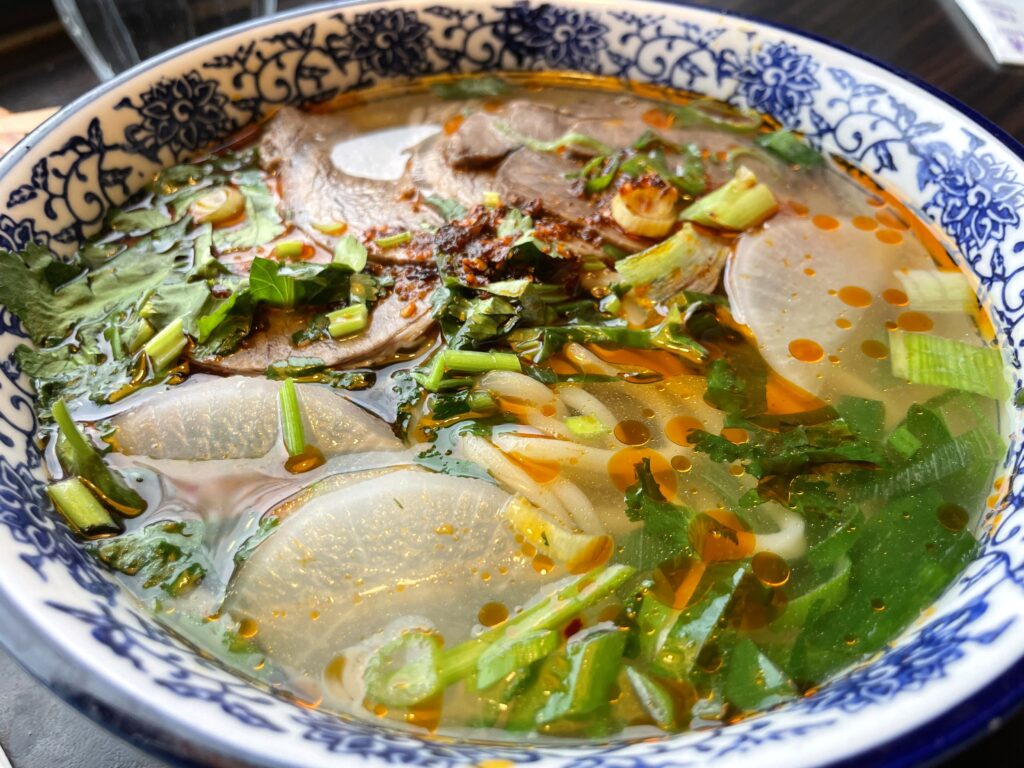
LanZhou LaMian’s famous “Thousand Year Beef Broth” is the soul of beef noodle soup. It’s crafted through a meticulous process with beef simmering gently in a blend of traditional spices, allowing flavors to meld and develop over time. The result is a broth as clear as crystal, yet brimming with the rich essence of beef’s naturally savory, robust flavor. Reminiscent of the exquisite Tafelspitz soup we had in Austria.
The thinly sliced beef, simmered to perfection, is soft and bursting with natural rich earthy flavors, flawlessly complemented by the crisp, slightly bitter radish. Noodle Maker makes it as authentic as it can be, by adhering to the highest standards of “one clear, two white, three red, four green, five yellow” – broth crystal clear, radish slices pristine white, chili oil bright red, cilantro and garlic shoots verdant green, and noodles gleaming golden. The chili oil is crafted with precision and care, mixing chili flakes and sesame, then drizzled with hot oil. It imparts a fragrant spicy kick without coloring the broth red, allowing you to savor the inherent pure, rich flavor of the beef soup. Enhanced with various fresh toppings, every slurp promises an unparalleled umami experience, soothing and satisfying!
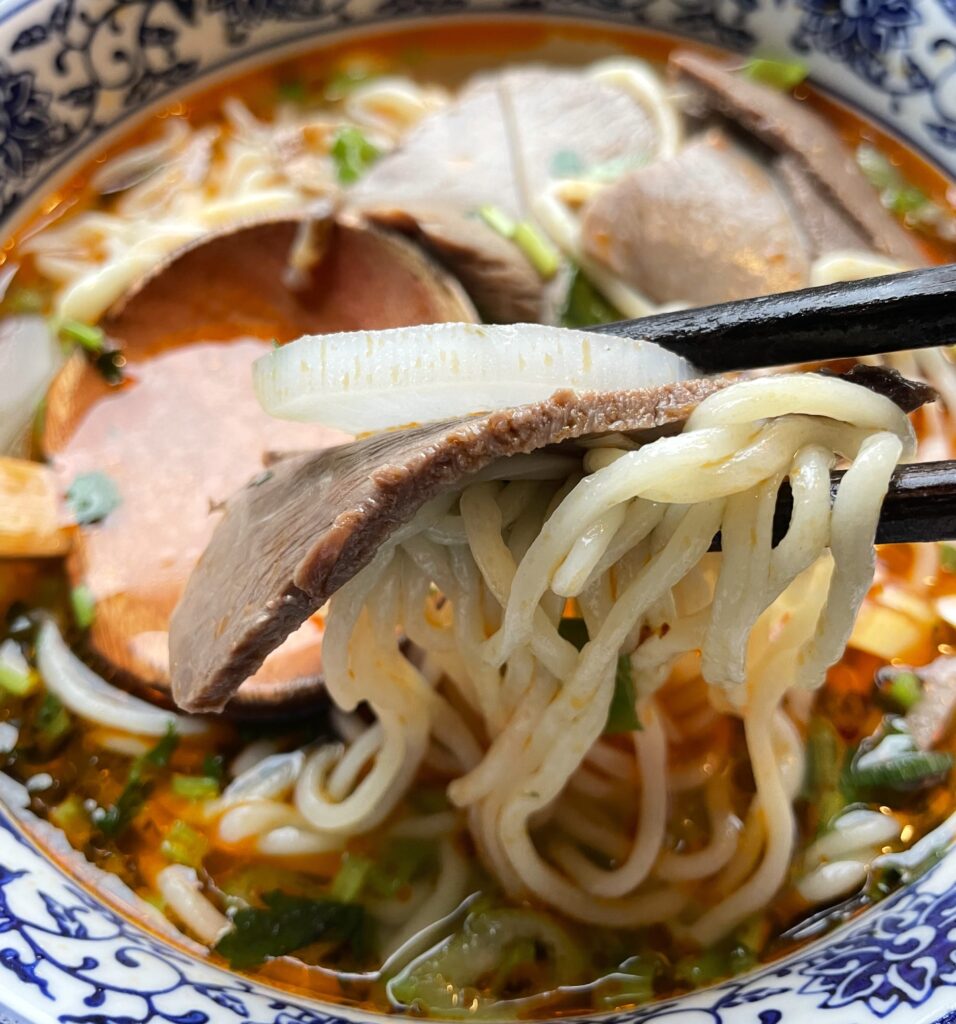
At Noodle Maker, you can choose different thickness of noodles. For this dish, we recommend either thin (三细 – favorite) or standard (二细) thickness. Too-thin noodles risk becoming mushy as they soak up too much broth, while those too thick or wide may not cook evenly or remain too firm after cooking. Once served, give them a gentle stir is to prevent them from sticking together.
Lanzhou beef noodle soup has long been a staple food for the masses, with Lanzhou municipal government ensuring it remains an affordable option for all. The price of this beloved bowl has stayed remarkably low over the years in most mid-sized Chinese cities, holding steady at around 8 Chinese yuan, roughly equivalent to 1 euro.
As the weather warms and the days unfurl, may you continue to savor life’s simple joys, finding solace and satisfaction in good food and great company, just as we do. Until next time, happy eating!
